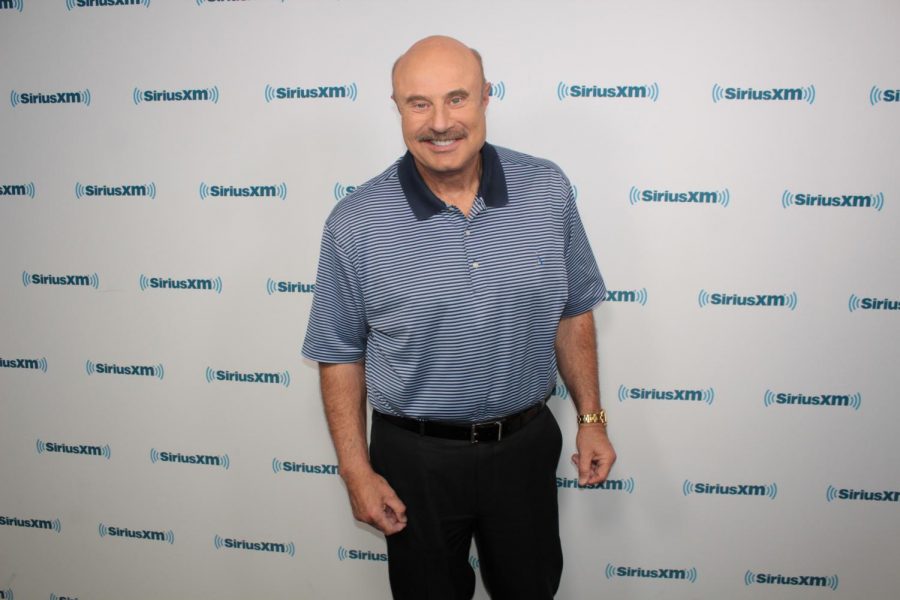Dr. Phil’s Comments Exemplify a Problematic Career
This week, television personality “Dr. Phil” made headlines for controversial remarks about the COVID-19 pandemic. In an interview on Fox News, the television host compared deaths due to the coronavirus to accidental deaths from drowning in pools or car accidents.
In particular, he criticized the economic shutdown, explaining that “the fallout is going to last for years because people’s lives are being destroyed.”
It is clear that Dr. Phil is misguided in his commentary on COVID-19. These comparisons are entirely inaccurate and completely miss the most important points about the pandemic. Telling viewers that the deaths from the coronavirus pandemic should be treated the same way as accidental deaths is entirely misguided. It undermines the efforts by medical professionals to enforce social distancing measures that are essential to mitigating the spread of the deadly virus.
The real question, ultimately, is why Dr. Phil is even being asked about the virus in the first place. Dr. Phil, whose real name is Philip McGraw, not only lacks a medical degree, but he is also not currently licensed to practice psychology.
McGraw’s television program, “The Dr. Phil Show,” has become more famous for its eccentric and unsettling guests than for the quality of his guidance. With the advent of YouTube, short and out-of-context clips have boosted the show’s notoriety at the expense of the exploitation of his very vulnerable guests.
In 2013, Todd Herzog, star of the reality competition “Survivor,” appeared on the show to discuss his substance abuse issues. Prior to the taping, Herzog was left unattended in his dressing room where he found and drank an entire bottle of vodka. After this, he was given a Xanax pill before his appearance to “calm his nerves.”
Herzog believed that this ultimately contributed to his alarming behavior during the show.
These allegations contributed to a larger investigation by STAT News and The Boston Globe about a dangerous pattern in the show’s handling of guests struggling with substance abuse. Martin Greenberg, director of professional affairs for the “The Dr. Phil Show,” denied the claims and said, “Addicts are notorious for lying, deflecting and trivializing.”
McGraw’s recent coronavirus comments are just the tip of the iceberg. His show is a dangerous misrepresentation of clinical psychology. His guests often appear in their most vulnerable states, and his behavior takes advantage of them.
“The Dr. Phil Show” came under heavy criticism for his interview with Shelley Duvall, star of Stanley Kubrick’s film “The Shining.” A promotional segment for the interview was scrutinized for taking portions of the interview out of context to make Duvall appear even more unstable by using a clip of Duvall saying that she did not think her late co-star and close friend, Robin Williams, was really dead but was instead “shape-shifting.”
Stanley Kubrick’s daughter called out the coverage of the interview, writing that the episode was “lurid and exploitative entertainment” and took advantage of Duvall’s poor mental health and difficulties coping with grief.
Rather than adequately providing help for Duvall, which should not be done in such a public medium in the first place, McGraw and the producers of his show exploited the mental state of Duvall for shock value.
Again, it is important to reiterate that though McGraw holds a doctorate in clinical psychology, his license to practice in Texas expired in 2006 and has not since been renewed. He has never held such a license in the state of California, where the show is filmed.
An article from The Hollywood Reporter in February drew attention to Frank Lawlis, chief content advisor to Dr. Phil, who has come under scrutiny for potentially dangerous practices. Lawlis spoke out against criticism that the show had exploited several guests, saying, “You can’t script what a person says, and sometimes the guests are their worst enemies. We don’t exploit a person’s problems.”
Lawlis is also notorious for using questionable methods: his rehab center in California, Creative Care, had its license suspended in late 2019 after two clients died.
McGraw’s methods of treatment outside of the show have similarly been the subject of disapproval. A line of weight loss products released by McGraw was faced with multiple lawsuits. Turn Around Ranch, the treatment facility often promoted on “The Dr. Phil Show,” has also faced several lawsuits alleging torture, public shaming and animal abuse.
McGraw’s latest comments should serve as an indicator that it is time to dethrone the highest-paid daytime personality. His history of exploiting the show’s guests in their most vulnerable moments goes against every tenet of psychological practice. His comments about the coronavirus pandemic indicate just how tone-deaf and ignorant McGraw really is.
In a time of such immense mental health needs for the entire global community, it is imperative that television and other media outlets rely on informed and ethical professionals in the field to provide much-needed guidance.
Kelly Christ, FCRH ’21, is an English and psychology major from Long Island, N.Y.
Columnist volume 101, Editorial Director and Opinion Editor volume 102











































































































































































































Julian Smith • Oct 1, 2020 at 8:29 pm
I’m starting to agree the more I see of Phil McGraw the more I wander
John Kovac • Sep 23, 2020 at 1:47 pm
Thank you for this article. I’ve always been disgusted by McGraw’s approach of turning what should be private matters into thoughtless reality TV.